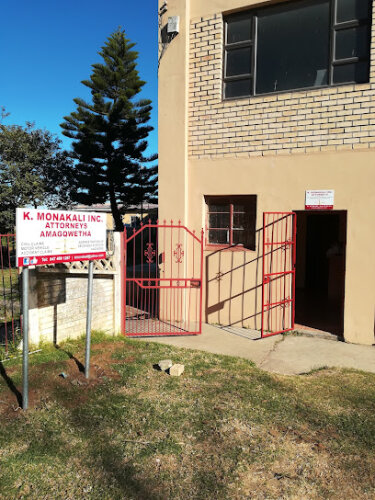Best Marriage Lawyers in South Africa
Share your needs with us, get contacted by law firms.
Free. Takes 2 min.
Free Guide to Hiring a Family Lawyer
Or refine your search by selecting a city:
List of the best lawyers in South Africa
About Marriage Law in South Africa
Marriage in South Africa is governed by a combination of traditional and statutory laws, reflecting the country's diverse cultures. There are three main types of marriages recognized: civil marriages, customary marriages, and civil unions. Civil marriages and civil unions are regulated by the Marriage Act and Civil Union Act, respectively. Customary marriages, which are traditional marriages according to African customary law, are regulated by the Recognition of Customary Marriages Act. The legal requirements for marriage include mutual consent, minimum age requirements, and registration of the marriage with the Department of Home Affairs.
Why You May Need a Lawyer
There are several situations where you might require legal assistance related to marriage in South Africa:
- Pre-marital agreements: Drafting or reviewing ante-nuptial contracts to protect assets.
- Customary marriage queries: Ensuring a customary marriage is legally recognized.
- Civil unions: Understanding the rights and obligations involved in a civil union.
- Divorce proceedings: Guiding through the legal process and settlement negotiations.
- Marital disputes: Mediation and resolution of disputes, including custody and support issues.
- Immigration matters: Advising on marital status for immigration or citizenship.
Local Laws Overview
South African marriage law includes several critical aspects that individuals should be aware of:
- Consent and Capacity: All parties must have the capacity and consent to marry, with no prohibitive degrees of family relationship.
- Registration: Marriages must be registered with the Department of Home Affairs to be legally recognized.
- Property Regimes: Marriages are either in community of property or out of community of property (often with an ante-nuptial contract). This dictates asset distribution and debt responsibilities.
- Customary Marriages: Must comply with the customs of the community and be registered to be recognized legally.
- Pasgol: Small fines/dowries may be recognized in certain customary law practices but may not have legal standing in statutory laws.
Frequently Asked Questions
1. What is the legal age to marry in South Africa?
The legal age to marry is 18 years for both genders. Individuals below this age require parental consent.
2. Do both parties need to be present for marriage registration?
Yes, both individuals must be present to register the marriage in person, along with the required identification documents.
3. What is an ante-nuptial contract?
An ante-nuptial contract is a legal agreement signed before marriage to specify the division and ownership of property should the marriage dissolve.
4. Can same-sex couples get married in South Africa?
Yes, South Africa recognizes civil unions for same-sex couples under the Civil Union Act.
5. How are customary marriages validated?
Customary marriages must meet traditional criteria and be registered with the Department of Home Affairs to be legally recognized.
6. What happens if a marriage is not registered?
A marriage not registered with the Department of Home Affairs may not be acknowledged legally, affecting legal rights and responsibilities.
7. Can foreigners marry in South Africa?
Yes, foreigners can marry in South Africa, but they must meet the legal requirements and may require additional documentation.
8. What is 'in community of property'?
'In community of property' means that all assets and liabilities are jointly owned by both spouses.
9. How do I change my marital property regime?
You will need a court application to change your marital property regime, typically requiring mutual agreement and legal counsel.
10. Is polygamy legal in South Africa?
Polygamy is recognized under customary marriages, but only for men and must comply with traditional customaries and laws.
Additional Resources
For more information or assistance, consider the following resources:
- Department of Home Affairs: For marriage registration and legal documentation.
- Legal Aid South Africa: Provides legal assistance to those who cannot afford it.
- Family Advocates Office: Offers services related to divorce, custody, and other marital matters.
- South African Law Society: To find a qualified attorney specializing in marriage law.
Next Steps
If you require legal assistance in marriage-related matters, consider the following steps:
- Consult with an attorney specializing in family or marriage law to understand your rights and options.
- Gather all necessary documentation, including identification and financial records, to ensure a smooth consultation process.
- If financially strained, contact Legal Aid South Africa to check if you are eligible for assistance.
- Stay informed about your legal status and responsibilities, particularly if you're considering changes to your marital regime or entering into a customary marriage.
Lawzana helps you find the best lawyers and law firms in South Africa through a curated and pre-screened list of qualified legal professionals. Our platform offers rankings and detailed profiles of attorneys and law firms, allowing you to compare based on practice areas, including Marriage, experience, and client feedback.
Each profile includes a description of the firm's areas of practice, client reviews, team members and partners, year of establishment, spoken languages, office locations, contact information, social media presence, and any published articles or resources. Most firms on our platform speak English and are experienced in both local and international legal matters.
Get a quote from top-rated law firms in South Africa — quickly, securely, and without unnecessary hassle.
Disclaimer:
The information provided on this page is for general informational purposes only and does not constitute legal advice. While we strive to ensure the accuracy and relevance of the content, legal information may change over time, and interpretations of the law can vary. You should always consult with a qualified legal professional for advice specific to your situation.
We disclaim all liability for actions taken or not taken based on the content of this page. If you believe any information is incorrect or outdated, please contact us, and we will review and update it where appropriate.
Browse marriage law firms by city in South Africa
Refine your search by selecting a city.
















